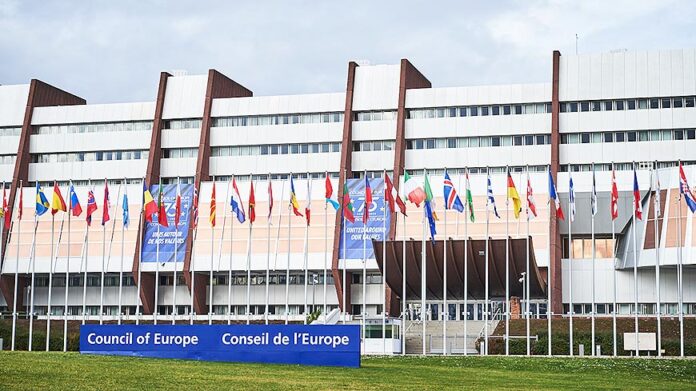A human rights monitoring body of the Council of Europe (CoE) detailed the deteriorating situation regarding hate speech and hate-motivated violence in Turkey in a report published on Thursday, calling out the authorities for inadequate responses and a failure to protect vulnerable communities, Turkish Minute reported.
In its sixth monitoring report on Turkey evaluating the period up to November 21, 2024, the European Commission against Racism and Intolerance (ECRI) detailed an alarming rise in hate rhetoric and crimes targeting various groups, from non-Muslim communities and LGBTI individuals to Syrians, Kurds and Roma.
ECRI found that while legislation criminalizing certain forms of hate speech exists, enforcement is patchy and institutional response remains sluggish and, in many cases, indifferent.
Systemic hate speech across media and political discourse
Hate speech is described as “widespread” in Turkish media and political discourse, with regular targets including Alevi Muslims, non-Muslim minorities (such as Jews and Christians), Kurds, refugees, migrants and LGBTI individuals. The Hrant Dink Foundation, which monitors more than 1,000 print media outlets, has documented consistent patterns of discriminatory and inflammatory language against these groups.
The report emphasizes how political leaders often exacerbate the issue. During the 2023 presidential election, both major parties employed xenophobic narratives. Syrians were targeted with slogans like “Syrians out,” while presidential candidates made public pledges to deport Syrian refugees. President Recep Tayyip Erdoğan himself was cited for characterizing LGBTI individuals as a “virus of heresy,” echoing language by other senior officials labeling LGBTI communities as a threat to family values and societal cohesion.
Instances of hate speech have not been limited to political figures: Media outlets have also fueled prejudice. Anti-Armenian rhetoric spiked during tensions between Azerbaijan and Armenia, while anti-Greek sentiment intensified amid Turkish-Greek disputes. Jewish communities also experienced an increase in antisemitic hate speech, particularly after the October 2023 Hamas attacks and Israel’s military response.
Civil society marginalized, judicial remedies ineffective
Civil society actors consulted by ECRI report that the climate for combating hate speech has worsened, and efforts to counter it have met with governmental hostility. Bar associations in Izmir and Ankara, for instance, were prosecuted for condemning anti-LGBTI statements by the head of the Directorate of Religious Affairs. Though both were eventually acquitted, the case illustrates the shrinking space for civil society intervention.
The judiciary’s role in enforcing hate speech laws was also criticized. Although Turkey’s Penal Code includes Articles 122 and 216, which criminalize discrimination and incitement to hatred, these laws are rarely used to their full extent. Key categories — such as ethnicity, language, sexual orientation and gender identity — are not comprehensively protected under the law, and bias motivations are often not recognized in official records.
Police and prosecutors record hate crimes inconsistently. For example, while police registered 87 hate crime cases in 2021, prosecutors registered 210 — pointing to serious flaws in the system’s coherence. Compounding this is the fact that hate motives are not systematically logged in judicial databases, hampering analysis and policy formulation.
Hate-motivated violence: mob attacks, killings, threats
The report catalogues a disturbing array of violent incidents driven by ethnic, religious or sexual identity hatred. In 2021 alone civil society reported 64 hate crime incidents to the OSCE’s Office for Democratic Institutions and Human Rights (ODIHR), 42 percent of which involved physical violence or murder.
Kurdish individuals were subjected to mob attacks, one of which led to the murder of seven family members. Anti-Syrian riots erupted in multiple cities in 2024 after the alleged sexual assault of a minor by a Syrian man. Rioters looted shops, attacked homes and killed at least one Syrian teenager. Over 1,000 people were arrested in the aftermath.
LGBTI persons, especially transgender individuals, face constant threat. The report documents multiple transgender murders since 2019, including the killing of activist Hande Kader in 2016. A more recent murder in June 2024 of a trans woman underscores the ongoing danger.
Christian churches, particularly Protestant ones, have been targeted by arson and physical attacks. In January 2024 a Catholic church in Istanbul was attacked by gunmen affiliated with the Islamic State in Iraq and the Levant (ISIL), killing one congregant. Authorities responded with prompt arrests, but other threats — such as vandalism and hate graffiti — often go unanswered.
Authorities’ response: training, but insufficient action
The Turkish government has undertaken several initiatives, including hate crime training for nearly 122,000 gendarmerie staff and over 21,000 police recruits. Between 2016 and 2024, more than 250,000 law enforcement officers received informational seminars. Members of the judiciary are also being trained in human rights and hate crimes.
However, ECRI noted that these efforts, while commendable in scope, have not translated into systemic change or improved outcomes for victims. The root problems — the lack of a unified hate crime database, limited legal definitions and a disconnect between police and marginalized communities — remain unresolved.
In a rare instance of decisive action, arrest warrants were issued in March 2024 for Karabük University students who posted racist and false sexualized claims about African students. But such cases are exceptions, not the norm.
ECRI urges Turkey to enact a fundamental shift in its approach to hate speech and violence. The report calls for the formation of an inter-institutional working group to draft a comprehensive anti-hate strategy, involving government agencies, human rights bodies and a diverse range of civil society actors, including LGBTI and religious minority representatives.
It further recommends the establishment of specialized hate crime liaison units within police forces to build trust and improve reporting. It also stresses the need to revise legal frameworks to ensure hate motives are effectively prosecuted and that vulnerable groups are offered tailored protection and legal redress.
On the issue of underreporting, ECRI identifies a vicious cycle: Vulnerable communities’ lack of trust in law enforcement leads to non-reporting, which in turn reinforces state perceptions that hate crimes are rare, an illusion that stymies policy action.
While the Turkish government claims to treat minorities recognized in the 1923 Treaty of Lausanne fairly, such as the Armenian Apostolic, Greek Orthodox and Jewish communities, serious gaps remain. Protestant churches face bureaucratic obstruction, including denials of building permits and harassment of foreign pastors.
Alevis, a significant Muslim minority, remain unrecognized as a distinct religious group. Although a new Directorate for Alevi Affairs was created in 2022 and supports over 850 cemevis with utility bill payment, the state still refuses to classify these houses of worship formally. Civil society sees this as a continuation of discrimination.
Jehovah’s Witnesses also face continued persecution due to the absence of alternative civilian service for conscientious objectors. Some objectors reportedly suffer long-term harassment, including pressure on employers to dismiss them.
ECRI’s sixth report on Turkey, while acknowledging some improvements — such as expanded training, support to local governments and post-incident police responses — assesses that hate speech and violence are worsening in the country and that institutional responses are inadequate.
The report concludes with two priority recommendations: the creation of a comprehensive strategy against hate speech through a dedicated working group, and increased cooperation and resource support for municipalities managing large refugee populations. These recommendations will be subject to interim follow-up within two years.















